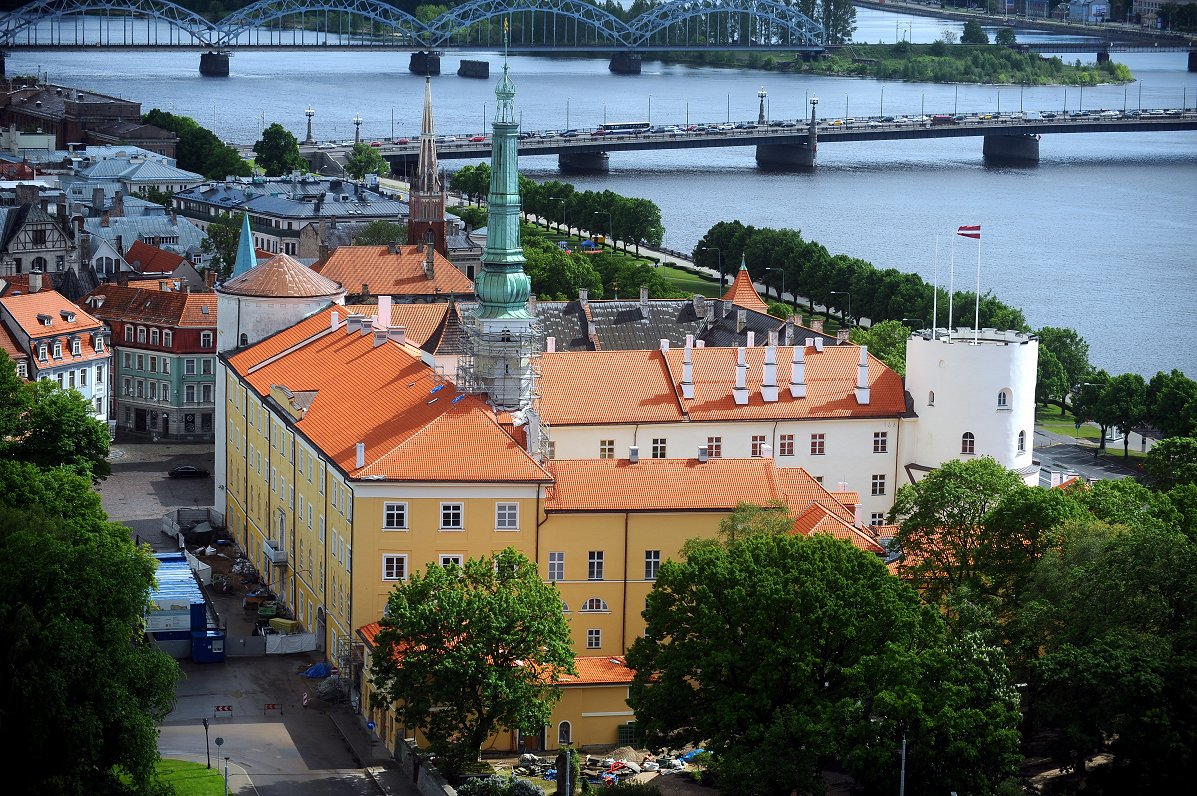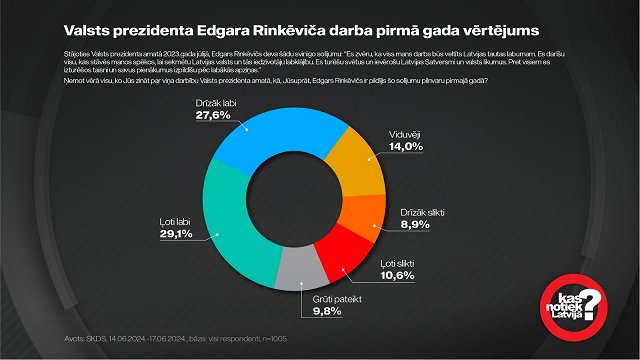Four years ago, Vējonis, formerly a member of the Greens and Farmers Union (ZZS) became president thanks to the support of the Unity party. The makeup of the new parliament is starkly different, and neither New Unity, nor ZZS look likely to support him. He also suffered a serious health scare early in his presidency that may make the opportunity to spend time away from the intense scrutiny and relentless scheduling of being president a more attractive proposition.
Uldis Augulis, head of the Saeima faction of ZZS - now an opposition party - said that putting forward a candidate knowing full well that there'd be no support for him in parliament would amount to a utopian step.
According to LTV, this week Vējonis met faction leaders and, inter alia, discussed the chances of re-election. Party reps are evasive over commenting the matter directly but they do admit that it was indeed a topic of debate with the president.
As reported, discussions over the next presidential candidate are expected within the coming weeks. The National Alliance party, meanwhile, has confirmed it'll put forth Egils Levits, a Judge of the European Court of Justice, as its candidate.
His candidacy was floated in the 2015 presidential election as well, and unofficially he is said to be the most likely of the candidates to take office.
Other parties, however, say they don't have specific plans for naming their own candidates yet.
Opposition party Harmony said that it won't support Vējonis as president due to his "red lines" policy against the party as he chose a PM nominee to head the government after last year's election.
In effect, Vējonis excluded Harmony from having a chance to form the government very early on during coalition talks, but other parties were unlikely to side with Harmony, supported mostly but not exclusively by ethnic Russians, anyway.
Vējonis' term runs out July 7 but the Saeima usually picks the president in late May or early June. This means the election will all but coincide with the European Parliament election.
Latvia elects its president - its chief defense official who also has the power to veto bills and nominate PM candidates - in a parliamentary vote. This election will be different for Latvia, as the country recently made the ballot open, meaning people will know how MPs voted.
At the moment, New Unity MPs are also putting forth a bill at the Saeima to increase the period of time between naming the candidates and putting their candidacies to vote.





























